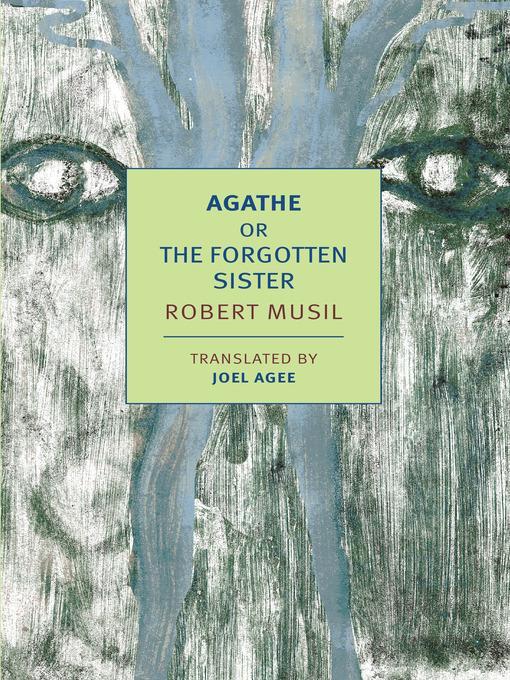
Agathe
Or, The Forgotten Sister
- اطلاعات
- نقد و بررسی
- دیدگاه کاربران
نقد و بررسی

October 1, 2019
A reconstructed novel that brings a "forgotten sister" to play in a winding narrative. Now considered a classic of early-20th-century literature, Musil's The Man Without Qualities (1943) presents a neurasthenic fellow who lives entirely too much inside his own head, a mathematician who is indifferent to bourgeois life but partakes of it all the same. At the start of the present novel, Frankensteined from chapters of the former and bits of the thousands of pages of manuscript Musil left behind, Ulrich is disembarking from a train: "Drops of the general conversation that had seeped into him during the trip were now draining away," and now, preparing for the funeral of his father--who has helpfully sent notice of his own impending death--he's left to his own musings. There's plenty to think about: His long-lost younger sister, Agathe, widowed and remarried, is in town for the occasion, and she announces that she's leaving her husband, a bore of a pedagogue. "Let him sue!" she says brightly, whereupon Ulrich is moved to remark, in his otherworldly way, "inner oblivion is more loathsome than anything." In time, Agathe has moved in with Ulrich, and the relationship becomes--well, let's just say there are universal strictures governing their behavior, which, though more cerebral than physical, in fact does have something of the physical to it "that with great tenderness paralyzed their limbs and at the same time enchanted them with an indescribable sensitivity." This is very much a European sort of tale, reminiscent of Goethe here and Pessoa there, without much in the way of action but very long on talk--talk of love here, of misunderstanding and grief there: "Someone who talks a lot," says Ulrich, "discharges another person's grief drop by drop, the way rain discharges the electricity in a cloud." That, or the chatterbox numbs the listener, which happens from time to time even as Musil carefully structures his twisting, unexpected storyline. Not entirely to contemporary tastes but a valuable addition to modernist European literature.
COPYRIGHT(2019) Kirkus Reviews, ALL RIGHTS RESERVED.

October 28, 2019
In this intriguing amendment to a towering work of modernism, Agee reorganizes
the second volume of Musil’s The Man Without Qualities, left unfinished at the time of Musil’s death in 1942. The result, which incorporates the author’s notes and never-before-published material, is this volume. Agee focuses on Agathe, the younger sister of the book’s protagonist, the indolent mathematician Ulrich, as they embark on a quasi-incestuous relationship in the last days of the Austro-Hungarian empire. The manic Agathe’s marriage to boorish professor Hagauer is on the rocks, and, following the death of her father, Agathe and Ulrich meet to settle his accounts and quickly embark on a series of “holy conversations,” covering everything from morality to love. They begin to function as one, “symmetrical creatures of Nature’s whim,” even dressing similarly as “twins by choice.” But Agathe becomes overwhelmed by her feelings for her brother and the machinations of the vengeful Hargauer, and considers suicide, only to be rescued by August Lindner, a schoolteacher of stringent principles, almost Ulrich’s opposite in temperament, creating an unspoken love triangle. As a new approach to Musil’s masterpiece, it shouldn’t be read in place of the original text, but it does make for an interesting curio.




دیدگاه کاربران